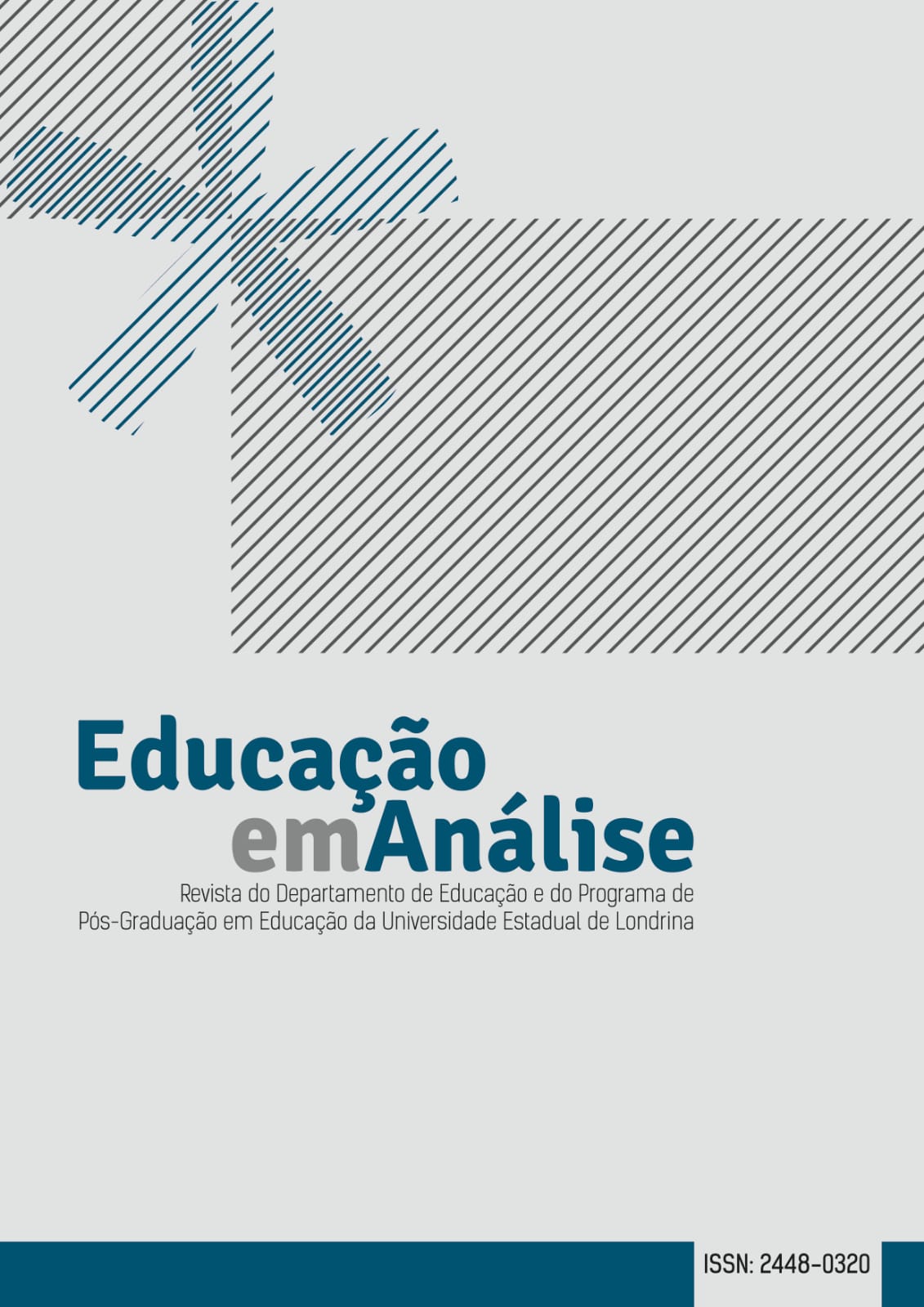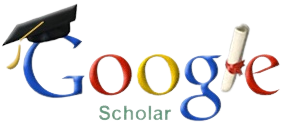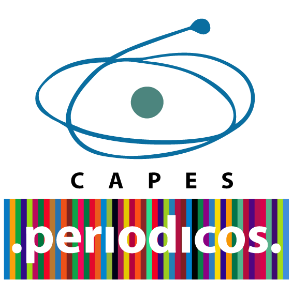Pedagogical work in Childhood Education and digital technologies
DOI:
https://doi.org/10.5433/1984-7939.2023v8n2p316Keywords:
Early Childhood Education; Child; Technologies; GamesAbstract
Children of the 21st century are part of the so-called "Net generation", as they were born immersed in communication and information technologies, through which they communicate, make new friends and play with electronic devices quite easily, from a very young age. In this sense, the purpose of this research is to discuss the specificities of pedagogical work in Early Childhood Education based on digital games and their implications for children's learning. It is believed that the playful activities of digital screens favor the construction of subjectivities and learning in childhood, since they reveal children's ways of being and living. In order to discuss these and other issues, it was opted for bibliographic research. The results show that electronic games can be used as working tools by teachers, provided that the activities are planned intentionally and educationally. The proposition of activities through technologies instigates and challenges children to think critically and creatively about digital devices, in addition to promoting different learning and interaction among peers.
Downloads
References
AMANTE, Lúcia. As TIC na escola e no jardim de infância: motivos e fatores para a sua integração. Revista Sísifo, Lisboa, n. 3, p. 51-59, maio/ago. 2007. Disponível em: http://sisifo.ie.ulisboa.pt/index.php/sisifo/article/view/61. Acesso em: 5 abr. 2023.
ANGOTTI, Maristela. Educação Infantil: para que, para quem e por quê. 2. ed. Campinas: Alinea, 2006.
AZUMA, Ronald. Making augmented reality a reality. In: OSA IMAGING AND APPLIED OPTICS CONGRESS, 2017, San Francisco. Anais […]. San Francisco: [s. n.], 2017. p. 25-29. Disponível em: https://ronaldazuma.com/papers/OSA2017_invited_paper_Azuma.pdf Acesso em: 16 jan. 2023.
BRASIL. Constituição da República Federativa do Brasil. Brasília, DF: Presidência da República, 1988. Disponível em: https://www.planalto.gov.br/ccivil_03/constituicao/constituicao.htm. Acesso em: 5 abr. 2023.
BRASIL. Lei n. 8.069, de 13 de julho de 1990. Dispõe sobre o estatuto da criança e do adolescente e dá outras providências. Brasília, DF: Presidência da República, 1990. Disponível em: https://www.planalto.gov.br/ccivil_03/leis/l8069.htm. Acesso em: 5 abr. 2023.
BRASIL. Lei n. 9.394, de 20 de dezembro de 1996. Estabelece as diretrizes e bases da educação nacional. Brasília, DF: Presidência da República, 1996. Disponível em: https://www.planalto.gov.br/ccivil_03/leis/l9394.htm. Acesso em: 5 abr. 2023.
BRASIL. Ministério da Educação. Diretrizes curriculares nacionais para a educação infantil. Brasília, DF: Secretaria de Educação Básica, 2010. Disponível em: http://portal.mec.gov.br/dmdocuments/diretrizescurriculares_2012.pdf. Acesso em: 5 abr. 2023.
BRASIL. Ministério da Educação. Conselho Nacional de Educação. Resolução CNE/CP n. 2, de 22 de dezembro de 2017. Institui e orienta a implantação da base nacional comum curricular. Diário Oficial da União: seção 1, Brasília, DF, n. 2, p. 41-44, 22 dez. 2017. Disponível em: http://portal.mec.gov.br/conselho-nacional-de-educacao/base-nacional-comum-curricular-bncc. Acesso em: 10 mar. 2023.
COELHO, Patrícia Margarida Farias. Os nativos digitais e as novas competências tecnológicas. Texto livre, Belo Horizonte, v. 5, n. 2, p. 88-94, 2012. DOI: https://doi.org/10.17851/1983-3652.5.2.88-95.
KISHIMOTO, Tizuko Morchida. Brinquedos e brincadeiras na Educação Infantil. In: SEMINÁRIO NACIONAL DO CURRÍCULO EM MOVIMENTO, 1., 2010, Belo Horizonte. Anais [...]. Belo Horizonte: Ministério da Educação, 2010. p. 1-20. Disponível em: http://portal.mec.gov.br/docman/dezembro-2010-pdf/7155-2-3-brinquedos-brincadeiras-tizuko-morchida/file. Acesso em: 10 mar. 2023.
LIMA, Telma Cristiane Sasso de; MIOTO, Regina Célia Tamaso. Procedimentos metodológicos na construção do conhecimento científico: a pesquisa bibliográfica. Katálysis, Florianópolis, v. 10, p. 37-45, 2007. DOI: https://doi.org/10.1590/S1414-49802007000300004.
MIGUEL, Carolina Costa. Tecnologia na educação infantil: letramento digital e computação desplugada. Cedes, Campinas, v. 43, n. 120, p. 60-72, maio 2023. DOI: https://doi.org/10.1590/CC271211.
OLIVEIRA, Sonara Maria Lopes de. Articulação entre educação infantil e anos iniciais do ensino fundamental: uma experiência de formação em contexto do colégio Mãe de Deus. 2019. Dissertação (Mestrado em Educação) - Universidade Estadual de Londrina, Londrina, 2019. Disponível em: http://www.uel.br/eventos/jornadadidatica/pages/arquivos/V%20Jornada%20de%20Didatica%20e%20IV%20Seminario%20de%20Pesquisa%20do%20CEMAD%20Saberes%20e%20praticas%20da%20docencia/ARTICULACAO%20ENTRE%20EDUCACA%20INFANTIL%20E%20ANOS%20INICIAIS%20DO%20ENSINO%20FUNDAMENTAL.pdf. Acesso em: 10 mar. 2023.
SOCIEDADE BRASILEIRA DE PEDIATRIA. Manual de orientação: uso saudável de telas, tecnologias e mídias nas creches, berçários e escolas. Rio de Janeiro: Departamento Científico de Saúde Escolar, 2019.
VYGOTSKI, Lev Semionovitch. A formação social da mente. São Paulo: Martins Fontes, 2002.
Downloads
Published
How to Cite
Issue
Section
License
Copyright (c) 2023 Daiane Souza Domingues, Silvana Binde Kresciglova, Jaqueline Delgado Paschoal, Marta Regina Furlan

This work is licensed under a Creative Commons Attribution-NonCommercial 4.0 International License.
Os artigos publicados na Revista Educação em Análise estão sob a Licença Creative Commons Atribuição 4.0 Internacional, garantindo Acesso Aberto. Deste modo, os autores mantêm os direitos autorais de seus trabalhos e, em caso de republicação, solicita-se que indiquem a primeira publicação nesta revista. Essa licença permite que qualquer pessoa leia, baixe, copie e compartilhe o conteúdo, desde que a devida citação seja feita. Além disso, autoriza a redistribuição, adaptação e criação de obras derivadas em qualquer formato ou meio, incluindo uso comercial, desde que a atribuição à revista seja mantida.
A revista se reserva o direito de efetuar, nos originais, alterações de ordem normativa, ortográfica e gramatical, com vistas a manter o padrão culto da língua e a credibilidade do veículo. Respeitará, no entanto, o estilo de escrever dos autores. Alterações, correções ou sugestões de ordem conceitual serão encaminhadas aos autores, quando necessário.
As opiniões emitidas pelos autores dos artigos são de sua exclusiva responsabilidade.
























